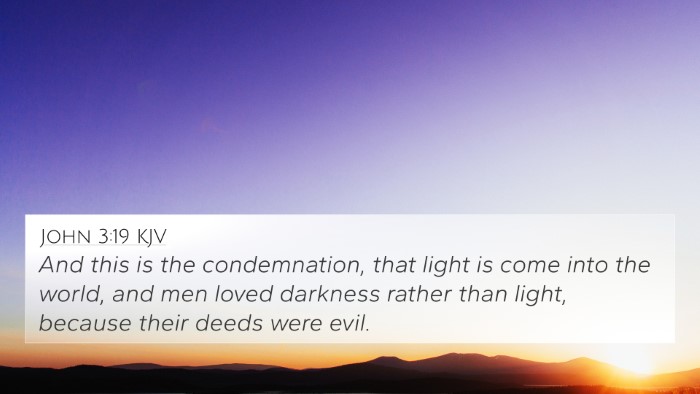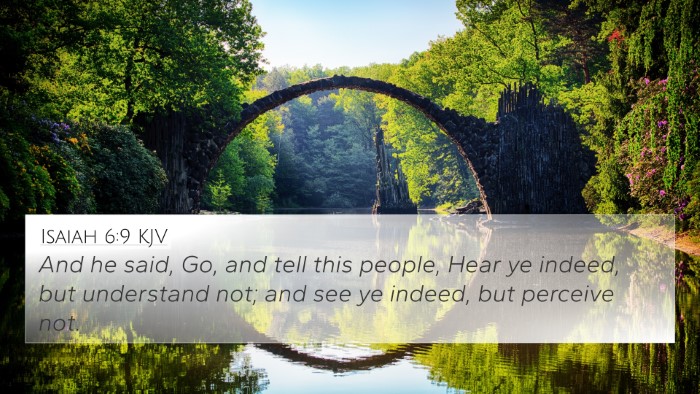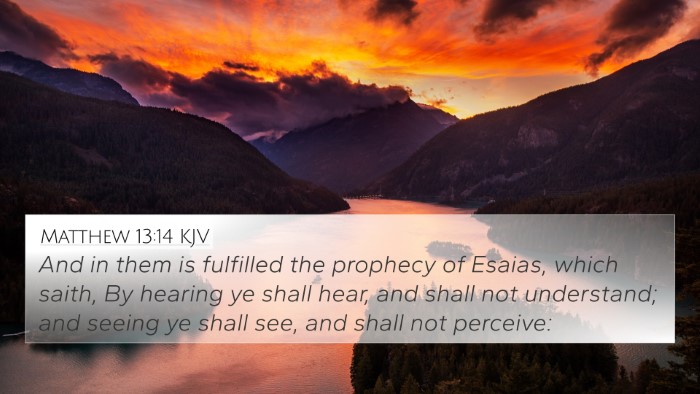Understanding Job 33:14
Job 33:14 states, "For God speaketh once, yea twice, yet man perceiveth it not." This verse is part of Elihu's speech, where he reveals insights about God's communication with humanity. Below, we will explore the meaning of this verse by collating insights from various public domain commentaries, providing a deeper understanding of the scripture.
Summary of Insights
-
Divine Communication:
According to Matthew Henry's Commentary, this verse emphasizes that God communicates with individuals in various ways, yet many often fail to recognize His voice. He may employ dreams, visions, or even subtle impressions on the heart.
-
Human Awareness:
Albert Barnes highlights the notion of human inability to perceive God's messages due to a lack of spiritual sensitivity or a hardened heart. God’s silence should not be interpreted as absence.
-
The Purpose of Divine Speech:
Adam Clarke adds that God's purposes in speaking to man are multifaceted. They include warning, guidance, and revealing truths necessary for spiritual growth and understanding.
Thematic Connections
Job 33:14 provides a crucial perspective on the divine-human relationship. Several other Bible verses echo similar themes:
- Psalms 19:1-3: The heavens declare the glory of God; day unto day uttereth speech.
- Isaiah 30:21: And thine ears shall hear a word behind thee, saying, This is the way, walk ye in it.
- Hebrews 1:1-2: God, who at sundry times and in divers manners spake in time past unto the fathers by the prophets.
- Proverbs 1:20-21: Wisdom crieth without; she uttereth her voice in the streets.
- Revelation 3:20: Behold, I stand at the door, and knock: if any man hear my voice.
- John 10:27: My sheep hear my voice, and I know them, and they follow me.
- James 1:5: If any of you lack wisdom, let him ask of God, that giveth to all men liberally.
Cross-Referencing and Linking Scriptures
The use of cross-references enhances the understanding of biblical texts. When exploring the connections between Job 33:14 and the verses mentioned above, we can see a consistent theme of God's desire to communicate with humanity.
Tools for Cross-Referencing
To study the Bible comprehensively, utilizing tools for cross-referencing can be invaluable:
- Bible Concordance: A helpful resource to identify keywords and locate scripture references.
- Bible Cross-Reference Guide: A structured approach to find thematic links between various verses.
- Cross-Reference Bible Study: Engaging in group studies focused on interrelated scriptures for deeper insights.
How to Use Cross-References
When seeking to understand a specific verse, such as Job 33:14, you can:
- Search for keywords within the verse to identify related scriptures.
- Compare the context of the verses for a detailed understanding of their themes.
- Engage in comparative analysis with verses from both the Old and New Testaments.
Conclusion
Job 33:14 serves as a reminder of God's persistent effort to communicate with mankind, urging us to be attentive to His voice. By employing tools and methods for Bible verse cross-referencing, we can enrich our understanding of God's Word and strengthen our spiritual journey.
Further Reflection
As you delve deeper into the study of scripture, consider keeping a journal of your insights and questions. Engage with your community for discussions and share interpretations, enriching everyone's understanding of links between Bible verses.
In summary, the exploration of Job 33:14 opens up a wealth of knowledge regarding God’s communication methods while highlighting the importance of human perception in recognizing divine messages.













